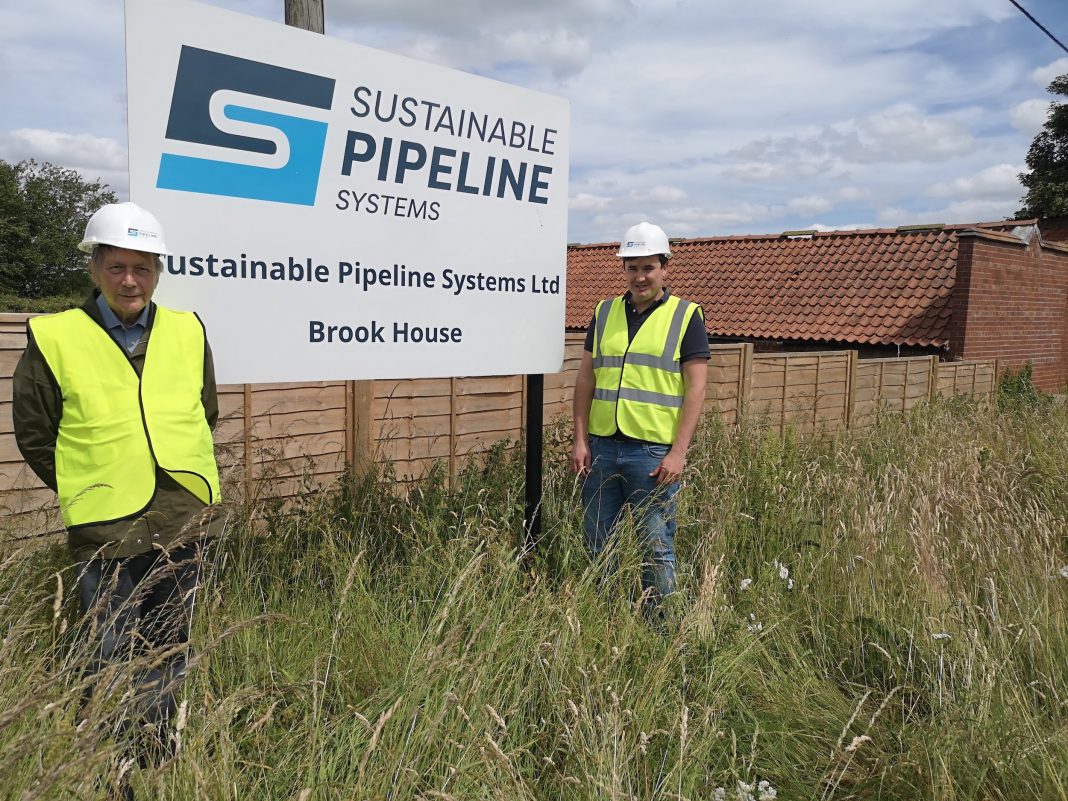A collaboration between two North Yorkshire companies has secured £297,000 of funding from the Department for Business, Energy & Industrial Strategy Industrial Net Zero Innovation Portfolio to support the switch from natural gas to hydrogen and help the UK meet its target of becoming net zero by 2050.
Pipeline experts Sustainable Pipeline Systems and end-connection experts Smartflow Couplings will now begin feasibility work at SPS’s site in East Heslerton, near Malton, as part of BEIS’s Industrial Fuel Switching Programme.
North Yorkshire sustainability consultant Andy Rickard will be working with the two companies to identify local industries and sites interested in utilising green hydrogen available at SPS’ North Yorkshire demonstrator base from 2024. This may include farms using offroad vehicles currently fuelled by diesel which could use hydrogen combustion engines. Hydrogen can be made from biomass creating a more sustainable energy cycle.
The project aims to show the feasibility of automated mobile pipeline construction with reduced carbon footprint and advanced digital integrity monitoring. SPS MASiP system has been developed for the hydrogen era for which a new backbone of hydrogen pipelines is needed for the UK, Europe and beyond. This development will support high pressure and larger diameter pipelines needed to connect industrial centres with the hydrogen supply needed for the future
SPS have formed a hydrogen advisory pipeline panel with most of the leading energy companies active in developing hydrogen options to guide the development of a full scale hydrogen pipeline demonstrator in 2023. The demonstrator aims to show end use as well as advanced pipeline construction technology for hydrogen fuel supply in industrial infrastructure.
Andrew Stevenson, CEO of SPS, said: “We are proud to be playing an integral role in the preparation for a new hydrogen pipeline transportation network to support the UK’s fuel switching plans.
“We are already at the forefront of pipe technology innovation, including digital monitoring to reduce environmental impact and monitor networks for leaks and fatigue failures.
“This project will allow us to use the expertise developed in other energy arenas to support decarbonisation.”
Smartflow specialises in designing and manufacturing dry break couplings to improve the efficiency of fluid transfer processes, as well as bespoke design and supply of end connections such as the SPS pipe connections. The manufacturer will aim to develop a high performance 36 inch diameter coupling to use across the SPS hydrogen network.
The two companies have worked together on developing 12” pipe assemblies for the past five years but this will be the first time they have partnered on exploring larger diameter pipelines which will be required for hydrogen roll-out. The feasibility phase of the project is expected to be completed by the autumn with a follow-on demonstrator project going ahead early 2023.
Gary Thompson, Managing Director of Smartflow, said: “This is an exciting opportunity to build on the work we have started in partnership with SPS during the early development, to facilitate the switch to hydrogen fuel.
“Our aim is to increase the Technology Readiness Level of the end connection system, with the intention of having pipe diameters developed up to 36” by 2024.
“Hydrogen gas can cause a lot of problems for standard carbon steel pipes and welded connections, so this project will require a corrosion resistant connection to match SPS’s patented MASIP pipeline product.”



